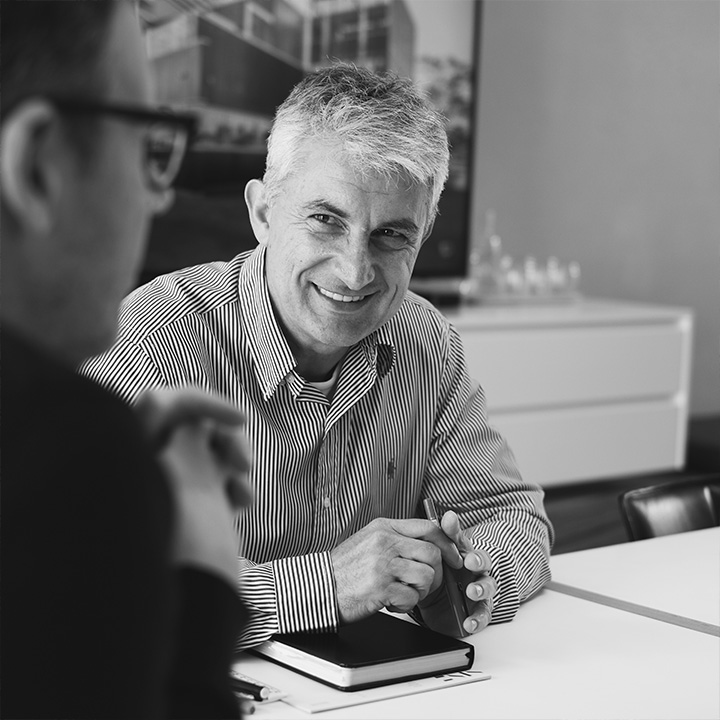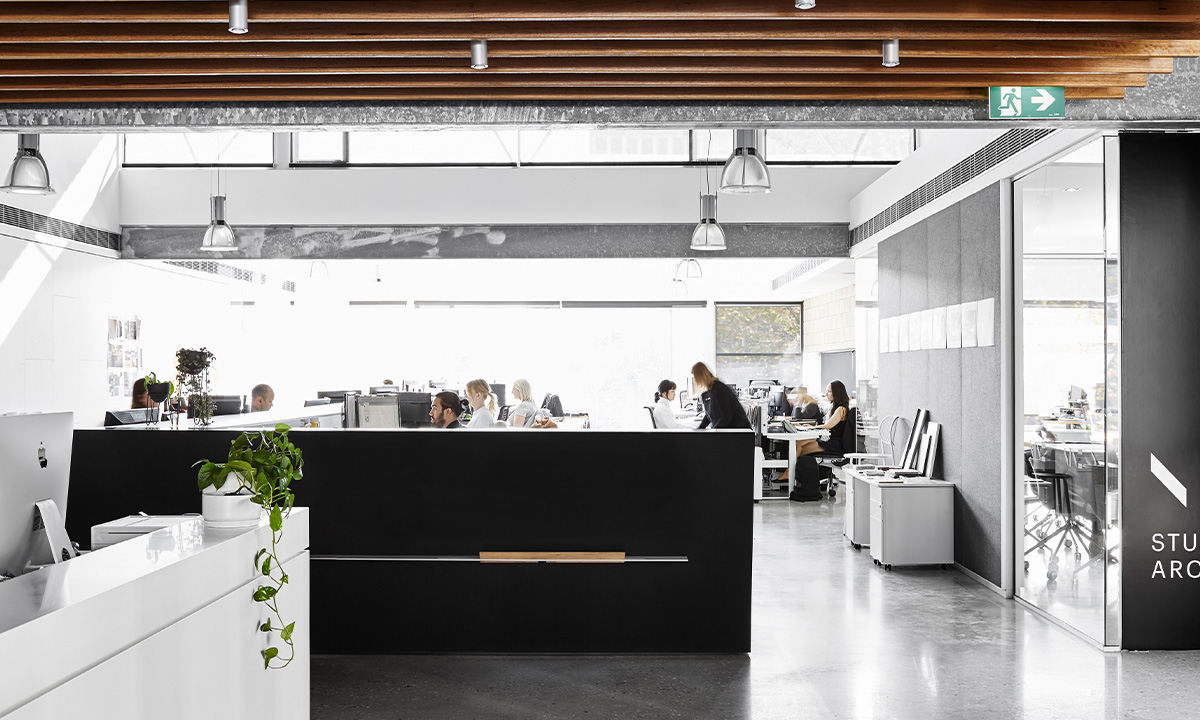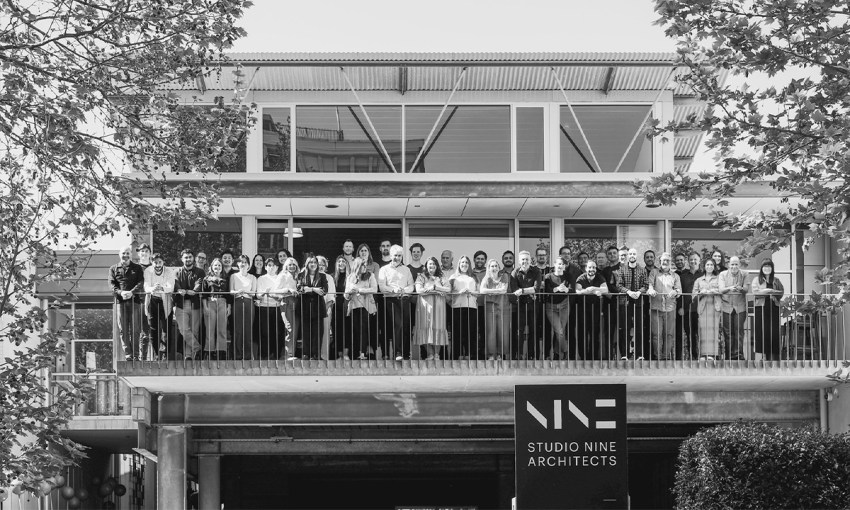From 25 years of operating Studio Nine Architects, co-founder and managing director John Galluccio can see benefit in keeping an eye on the past while embracing the future.
The evolution of business
It was 25 years ago when I started Studio Nine Architects, alongside two co-founders.
As the only remaining founder, I am forever grateful for the grounding and mentorship – regarding food, wine, coffee, fast cars, and sometimes architectural matters – I gained from my original partners.
We started the business when the economy was in recession. Holding down a job or winning a commission wasn’t easy, but we had a thirst for independence and control of our destinies. We were each very different and single-minded, but after some initial dating we thrust ourselves into a polygamous marriage and agreed to support each other.
To me, going into business is not a job, it’s a lifestyle choice. And to achieve success, you need to have resilience and be in it for the long haul – much like a marriage.

John Galluccio, Studio Nine Architects Managing Director.
We’ve had to always be on our toes and ready to respond to change. I’ve been told ‘agility’ is my favourite word. That’s because I see it as the basis of the business’s success. We’ve needed to be agile to both survive and grow.
Early on, we easily adapted from offering a broad range of architectural or building services. When work was tight, we acted as builders. When architectural fees were too low, we countered this by offering design and construct services. We were once referred to by the Architecture Institute as a chameleon practice.
This has been more widely adopted within the industry these days, but it was a calculated risk at the time and gave us the commercial insight that we pride ourselves on today.
The changes over 25 years have been immense. Ultimately, the biggest change is that of technology and communication, which has flowed into workplace changes and the growth of community and staff expectations.
When I started, I was stationed at a fixed drawing board sitting on a broken telephone stool in a room congested with people and ‘stuff’. The room was poorly ventilated and filled with cigarette smoke and ammonia fumes from the print machine, with a typist sitting in the corner. Having never smoked, I am sure I was addicted to cigarettes.
There were no flexible working arrangements, and even the coffee couldn’t have been considered a luxury. It was instant, which, being of Italian heritage, was foreign to me.
Read the entire back catalogue of Studio Nine’s design column here.
When it came to opening my own business, I wanted it to be comfortable and a place I was proud of. We spend more waking hours at work than we do in our homes after all. A proper coffee machine was essential.
Recently, I’ve had to adapt my mindset to be more open to flexible working arrangements. With today’s work-from-home culture, having ultimate agility is somewhat reduced. We work in a collaborative, fast-paced industry where things can change rapidly.
Flexible working does have its place; however, I’m still of the view that it’s not as efficient. I think a lot of business owners would agree with me.
Attracting and keeping good talent has always been important to me though, and we’ve always tried to accommodate people’s personal requirements. Everyone has a family and a life outside of work.
Technology continues to evolve at an accelerating rate. It has become a specialised project within itself. Navigating it has become more complex, and embracing it is expensive. Despite my limited understanding of many technological aspects, continual investment in technology has been essential for our survival and competitiveness.

However, heavy reliance on technology and digital skills has come at a cost of base skills. Graduates today lack the base building knowledge I was taught when I went to uni, and conversely, staff who hold the building knowledge lack the technological skills.
It’s a dilemma, and maybe something our tertiary institutions can look at addressing. The inclusion of internship and compulsory work-experience hours into the architecture and interior design courses at both UniSA and University of Adelaide are a step in the right direction.
How we communicate has been hugely influenced by technology. The advent of the fax machine was a huge deal back in the day. I recall the first fax we ever received; the whole office stood around that machine and watched this incredible piece of technology at work. And it was always followed by a phone call, just to confirm: “Did you get my fax?”
New here? Sign up to receive the latest happenings from around our city, sent every Thursday afternoon.
This was the start of the acceleration of communication. There’s a much higher demand on our time and we’re accessible (almost) 24/7. It’s something we’ve all had to adapt to, but having parameters in place from the beginning of a project has helped me stay off my phone and emails late at night.
Unfortunately, we all have an expiry date. We started the business by developing an exit strategy – without having to ever bring in the divorce lawyers. Our focus was on growth and succession, building a strong, financially stable business that put us in a position of strength.
Leaving a legacy was always our objective – for the business and our future freedom. Realising my own strengths and weaknesses has been confronting but key to this objective. Knowing I don’t have strengths across all aspects of the profession, I have surrounded myself with talented people that supplement my expertise across different age brackets and skill levels.
Our business is now made up of more than 50 people, and while I have four business partners, we can’t do it all ourselves. We have a strong leadership team and talented staff supporting us, and external governance to guide us.
With hard work and faithful clients, the business has developed momentum of its own, and there’s continuously new opportunities and challenges. As a director group, we’ve expended resources defining a clear direction for the business. Projects that I used to dream about are now commonplace, so we keep lifting the benchmark.
Business has given me a good lifestyle. It’s been a successful polygamic marriage, to say the least. We’ve built a trusted brand – one that has a future even bigger than what we’ve experienced.




